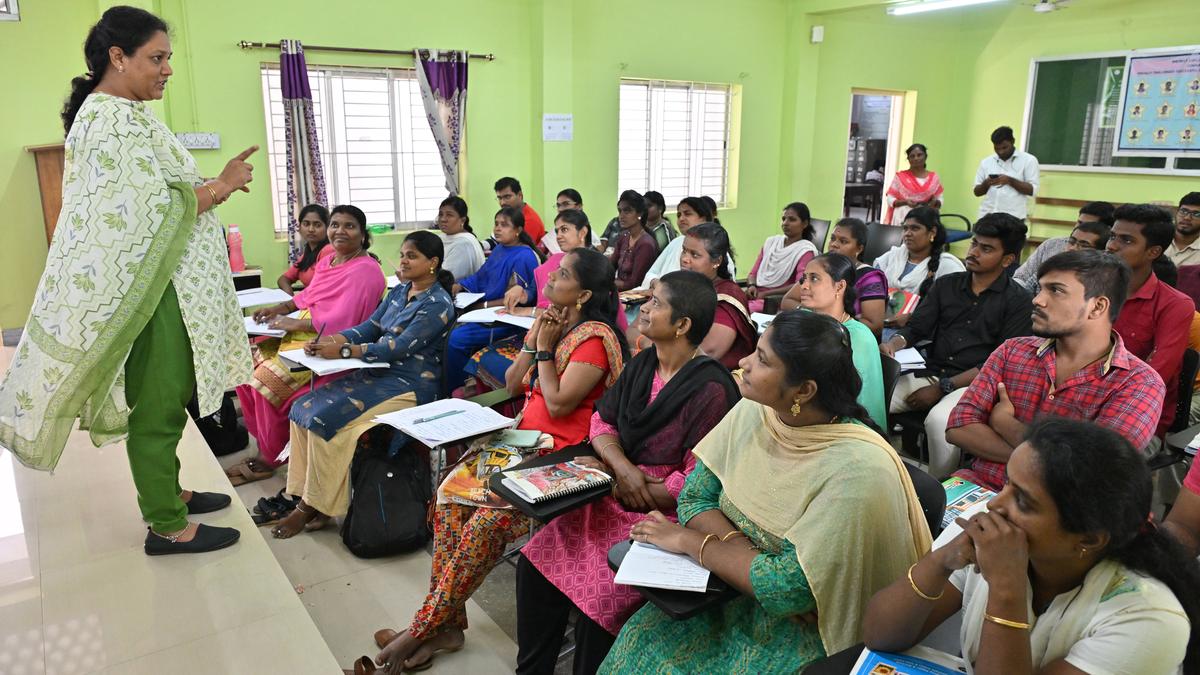
Free coaching commences for aspirants of TNPSC Group I, Group II/II A examinations in Coimbatore
The Hindu
The Department of Employment and Training began its free coaching for Group I and Group II /II A examinations at the District Employment and Career Guidance Centre in Coimbatore on June 11, 2024. Thirty-five aspirants turned up for the training on the first day.
The Department of Employment and Training began its free coaching for Group I and Group II /II A examinations at the District Employment and Career Guidance Centre in Coimbatore on June 11, 2024.
Thirty-five aspirants turned up for the training on the first day. They interacted with R. Niraimathi, an official in the rank of Deputy Collector, who is posted as the District Inspection Cell Officer, after clearing the Group I exam.
More number of participants are expected in the coming days, M. Karunakaran, Deputy Director of Employment and Training, Coimbatore, said.
The department has planned to conduct daily classes from 10 a.m. to 1 p.m. during weekdays, till July 10. Weekends will be utilised for conduct of mock tests subject-wise.
Five mock tests have been planned to prepare the students well for the exam that is to take place on July 13, Mr. Karunakaran said.

After a long, tiring day all we want is to jump right on our cosy beds and rest comfortably on our soft, fluffy pillows, right? Pillows are not quite appreciated as much as electric cars or air-fryers, for instance. Pillows are a wonderful man-made creation that has improved the lives and sleep of people across the globe. Did you know ages ago people used to rest their heads on a HARD ROCK? So how did humans go from sleeping on stones to cosy, fluffy and soft pillows today? Let’s get into the origin of your everyday pillows!

As the November 30 deadline nears for installing vehicle location tracking devices (VLTD) and emergency panic buttons in public service and nationally permitted goods vehicles in Karnataka, transport unions representing cab, bus, and truck operators are urging the government to reconsider the mandate. They argue that the high cost of these devices and a lack of awareness have made it difficult for many vehicle owners to comply with the requirement.









